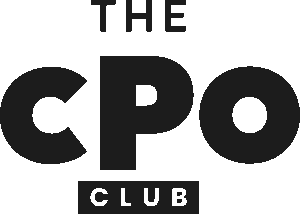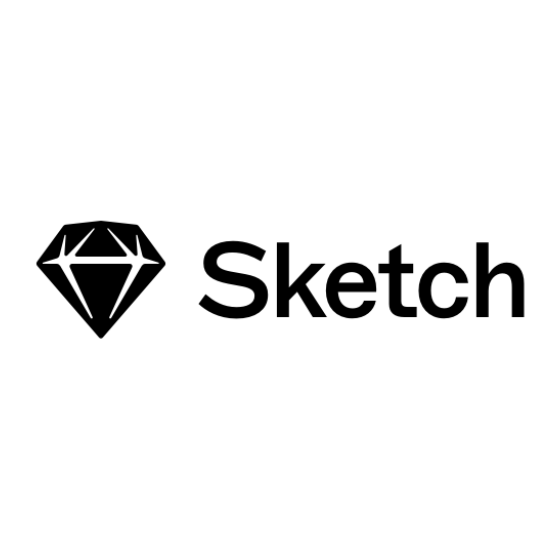10 Best Balsamiq Alternatives Shortlist
Here’s my shortlist of the best Balsamiq alternatives:
Wireframing software helps UX and product teams create low-fidelity layouts that map out a website or app’s structure, content, and user flow, without getting bogged down in visual design details. It’s the blueprint stage of design, where speed and clarity matter most.
You're here because you've done your homework, or you've used Balsamiq enough to know it’s a solid wireframing tool. It’s quick, easy to pick up, and great for sketch-style mockups. But you might be feeling its limitations.
Maybe you're craving more interactivity, richer prototyping features, or real-time collaboration with your team. Maybe you’ve run into the frustration of needing high-fidelity designs or smoother handoff to developers. Either way, you're ready to see what else is out there—and we're here to help you make a smart decision.
We’ve independently tested and reviewed a wide range of wireframing tools—from Balsamiq to its most advanced and niche competitors. This guide cuts through the noise to help you:
- Find tools that fit your workflow better
- Overcome specific pain points that Balsamiq doesn’t address
- Make informed trade-offs based on features, usability, and price
Let’s get into it.
What Is Balsamiq?
Balsamiq is a wireframing tool that helps you create quick, low-fidelity mockups of your designs. It's commonly used by UX designers, product managers, and developers who need to visualize and iterate on design concepts. Drag-and-drop elements, pre-built UI components, and a simple interface help with creating and sharing wireframes quickly. Overall, Balsamiq provides a straightforward way to translate ideas into visual formats that your team can easily understand and discuss.
Best Balsamiq Alternatives Summary
This comparison chart summarizes pricing details for my top Balsamiq alternative selections to help you find the best one for your budget and business needs
| Tool | Best For | Trial Info | Price | ||
|---|---|---|---|---|---|
| 1 | Best for real-time collaboration | 7-day free trial + free plan available | From $16/user/month (billed annually) | Website | |
| 2 | Best for high-fidelity prototypes | Free trial available | From $9/user/month (billed annually) | Website | |
| 3 | Best for macOS design tools | 30-day free trial | From $10/user/month (billed annually) | Website | |
| 4 | Best for offline diagramming | Free plan available | Website | ||
| 5 | Best for integrated communication | 14-day free trial | From $6/user/month | Website | |
| 6 | Best for fast prototyping building and testing | Free trial available | From $15/user/month | Website | |
| 7 | Best for multiplatform access | Free plan available | From $5/user/month (billed annually) | Website | |
| 8 | Best for open-source prototyping | Not available | Free plan available | Website | |
| 9 | Best for dynamic UX design | 30-day free trial | From $29/user/month (billed annually) | Website | |
| 10 | Best for Atlassian integration | Free plan available | From $3.80/user/month (billed annually) | Website |
Why Trust Our Software Reviews
We’ve been testing and reviewing product management software since 2020. As UX designers ourselves, we know how critical and difficult it is to make the right decision when selecting software. We invest in deep research to help our audience make better software purchasing decisions.
We’ve tested more than 2,000 tools for different product management use cases and written over 1,000 comprehensive software reviews. Learn how we stay transparent and check out our software review methodology.
Best Balsamiq Alternatives Reviews
Below are my detailed summaries of the best Balsamiq alternatives that made it onto my shortlist. My reviews offer a detailed look at the key features, pros & cons, integrations, and ideal use cases of each tool to help you find the best one for you
Marvel is a design and prototyping tool used by designers, product managers, and developers to create interactive prototypes and designs. It supports collaborative work and helps teams bring their ideas to life.
Why it's a good Balsamiq alternative: Marvel offers real-time collaboration features that set it apart from Balsamiq. You and your team can work on designs simultaneously, ensuring that feedback is instant and integrated. The tool also allows for interactive prototyping, so you can test and iterate on designs efficiently. This makes it a great choice if your team needs to collaborate closely during the design process.
Standout features & integrations:
Features include an intuitive interface that simplifies design creation. You can use the built-in prototyping tools to add interactivity to your designs. Marvel also offers user testing features, allowing you to gather feedback directly within the platform.
Integrations include Slack, Jira, Trello, Dropbox, Google Drive, Sketch, Confluence, Microsoft Teams, Zapier, and Asana.
Pros and cons
Pros:
- User testing capabilities
- Interactive prototyping
- Real-time collaboration
Cons:
- Not suitable for complex animations
- Limited advanced features
Justinmind is a prototyping tool designed for UX designers and developers, offering a platform to create interactive wireframes and prototypes. It serves as a valuable resource for visualizing and testing design concepts before development.
Why it's a good Balsamiq alternative: Justinmind provides high-fidelity prototyping capabilities, allowing you to create detailed, interactive designs. It offers a variety of UI elements and templates that help in crafting precise prototypes. You can simulate user interactions, making it easy to test and refine your designs. This is ideal if you're looking to move beyond basic wireframes and need more detailed design mockups.
Standout features & integrations:
Features include responsive design capabilities, the ability to simulate mobile gestures, and easy export options for sharing prototypes. You can also take advantage of customizable templates to speed up your design process. Additionally, the tool supports vector design, giving you more control over the visual aspects of your prototypes.
Integrations include Jira, Microsoft TFS, Adobe XD, Sketch, UserTesting, Hotjar, Google Analytics, Slack, Trello, and Zapier.
Pros and cons
Pros:
- Supports mobile gesture simulation
- Interactive elements available
- High-fidelity prototyping
Cons:
- Resource-intensive
- Steeper learning curve
Sketch is a design toolkit tailored for macOS, mainly used by designers and creative teams for prototyping and collaboration. It provides essential tools for vector editing, layout design, and creating interactive prototypes.
Why it's a good Balsamiq alternative: As a macOS-specific tool, Sketch offers a range of features like vector editing and smart layouts that cater to detailed design needs. It allows your team to create intricate prototypes with smart animations and interactions. You can also test designs on multiple devices, ensuring versatility in design outputs. This makes it a great choice if you're specifically working within the macOS environment and need advanced design capabilities.
Standout features & integrations:
Features include vector editing tools that allow for precision in design. You have access to flexible layouts and templates that adapt to your needs. The distraction-free interface supports focus and creativity, making it easier to develop detailed designs.
Integrations include Slack, Abstract, Zeplin, InVision, JIRA, Microsoft Teams, Dropbox, Google Drive, Trello, and Marvel.
Pros and cons
Pros:
- Multi-device testing
- Smart animations
- Strong prototyping capabilities
Cons:
- May need additional plugins
- Limited to macOS with no Windows support
Draw.io is a versatile diagramming tool used by various professionals, including IT specialists, designers, and business analysts, to create flowcharts, network diagrams, and other visual representations. It provides a platform for visualizing complex processes and ideas without requiring an internet connection.
Why it's a good Balsamiq alternative: Draw.io offers offline capabilities, making it a practical choice for users who need to work without internet access. You can create and edit diagrams directly on your device, which is ideal for remote locations or secure environments. The tool provides a range of diagram types, allowing you to map out processes, structures, and ideas effectively. This makes it a strong alternative if you require offline functionality and diverse diagramming options.
Standout features & integrations:
Features include an extensive library of shapes and templates to help you get started quickly. You can use layers to manage complex diagrams and keep them organized. The tool also supports exporting diagrams in various formats, making it easy to share your work with others.
Integrations include Google Drive, Microsoft OneDrive, Dropbox, GitHub, GitLab, Trello, Confluence, Jira, Notion, and Slack.
Pros and cons
Pros:
- Supports multiple diagram types
- Extensive shape library
- Offline access
Cons:
- Less suitable for high-fidelity designs
- Basic interface
Cacoo is a cloud-based diagramming tool used by teams for creating flowcharts, wireframes, and mind maps. It facilitates collaboration by allowing multiple users to edit diagrams simultaneously.
Why it's a good Balsamiq alternative: Cacoo offers integrated communication features, enabling your team to collaborate in real-time on diagrams. You can use its comment function to provide feedback directly on the designs. The tool also supports a range of diagram types, making it versatile for different projects. This emphasis on collaboration makes it a strong choice if your team needs to work closely together on design tasks.
Standout features & integrations:
Features include the ability to create a variety of diagrams, from flowcharts to network diagrams. You can use templates to jumpstart your design process. Cacoo also provides revision history, allowing you to track changes and revert to previous versions if needed.
Integrations include Slack, Google Drive, Dropbox, Confluence, Microsoft Teams, Box, Adobe Creative Cloud, Zapier, Trello, and GitHub.
Pros and cons
Pros:
- Wide range of templates
- Revision history
- Supports multiple diagram types
Cons:
- Not ideal for high-fidelity designs
- Limited advanced features
FluidUI is a web-based prototyping tool designed for designers and developers who need to quickly create interactive wireframes and prototypes. It helps teams visualize user interfaces and test design concepts efficiently.
Why it's a good Balsamiq alternative: FluidUI offers rapid prototyping capabilities, allowing you to build interactive wireframes quickly. Its drag-and-drop interface and pre-built components speed up the design process significantly. You can create and test interactive prototypes directly in the browser, which is ideal for teams working in fast-paced environments. This makes it a suitable choice if you're looking for a tool that emphasizes speed and agility.
Standout features & integrations:
Features include a drag-and-drop editor that simplifies the design process. You can use built-in libraries to access a wide range of UI components. FluidUI also supports live collaboration, enabling your team to work together in real-time on projects.
Integrations include Slack, Google Drive, Microsoft Teams, Trello, Dropbox, Jira, Confluence, GitHub, Asana, and Zapier.
Pros and cons
Pros:
- Pre-built UI components
- Interactive wireframes
- Fast prototyping capabilities
Cons:
- Less suitable for complex designs
- Basic customization options
NinjaMock is a wireframing tool designed for UX/UI designers and product teams to create interactive mockups and prototypes. It helps teams visualize design concepts and collaborate effectively across different platforms.
Why it's a good Balsamiq alternative: NinjaMock offers multiplatform access, which means you can work on your designs from any device with an internet connection. You can use its intuitive drag-and-drop interface to create wireframes quickly. The tool also provides interactive components, allowing you to simulate user interactions easily. This makes it a suitable choice if you need a flexible, accessible design solution.
Standout features & integrations:
Features include a library of built-in UI elements that you can use to speed up the design process. You can create interactive prototypes to test user flows and gather feedback. NinjaMock also allows you to export your designs in various formats for easy sharing.
Integrations include Slack, Jira, Trello, Dropbox, Google Drive, Confluence, Microsoft Teams, GitHub, Asana, and Zapier.
Pros and cons
Pros:
- Built-in UI element library
- Intuitive drag-and-drop interface
- Interactive prototyping
Cons:
- Not ideal for high-fidelity designs
- Basic customization options
Pencil Project is an open-source prototyping tool used by designers and developers to create wireframes and mockups. It provides essential tools for visualizing UI elements and designing user interfaces effectively.
Why it's a good Balsamiq alternative: Pencil Project is a free, open-source option that allows you to create wireframes and mockups without cost constraints. You can use its wide range of built-in shapes and elements to design interfaces. The tool also supports exporting designs in various formats, making it easy to share your work. This makes it a good choice if you're looking for a cost-effective, customizable prototyping solution.
Standout features & integrations:
Features include a detailed collection of pre-installed shapes and stencils to help you design quickly. You can customize templates to fit your specific design needs. Pencil Project also allows you to export your designs in multiple formats, such as PNG, PDF, or SVG, for easy sharing.
Integrations include Google Drive, Dropbox, OneDrive, GitHub, and Trello.
Pros and cons
Pros:
- Wide range of stencils
- Customizable templates
- Open-source and free
Cons:
- Not ideal for complex interactions
- May need additional plugins
Axure RP is a prototyping and wireframing tool used by UX designers and product managers to create interactive prototypes and design specifications. It helps teams visualize complex user interactions and design workflows effectively.
Why it's a good Balsamiq alternative: Axure RP offers dynamic UX design capabilities, providing you with the tools to build interactive and functional prototypes. You can use its conditional logic and dynamic content features to simulate real-world user interactions. The tool also supports extensive documentation, allowing you to create detailed design specs for your projects. This makes it a great choice if you need to design and test complex user experiences.
Standout features & integrations:
Features include an extensive library of UI elements that you can customize to fit your design needs. You can create responsive prototypes that adapt to different screen sizes. Axure RP also provides advanced prototyping features like adaptive views and masters, enabling you to design efficiently for multiple scenarios.
Integrations include Jira, Confluence, Slack, Microsoft Teams, Google Drive, Dropbox, GitHub, Trello, Box, and OneDrive.
Pros and cons
Pros:
- Customizable UI elements
- Responsive design capabilities
- Detailed design documentation
Cons:
- Complex for simple projects
- Resource-heavy on older devices
Gliffy is a diagramming tool used by IT, software engineering, product development, and design teams to create technical diagrams. It facilitates visual collaboration and integrates well with popular platforms like Confluence and Jira.
Why it's a good Balsamiq alternative: Gliffy excels in integrating with Atlassian products, making it a top choice for teams already using Confluence and Jira. Its drag-and-drop interface simplifies diagram creation, allowing your team to visualize complex ideas swiftly. The tool also leverages AI to generate diagrams, saving time and reducing manual effort. This makes it particularly useful for teams needing tight integration with existing Atlassian tools.
Standout features & integrations:
Features include a drag-and-drop interface that simplifies diagram creation. You can use sticky notes for brainstorming and create interactive diagrams that expand and collapse. The platform also offers pixel-perfect precision with drawing guides, enhancing the accuracy of your designs.
Integrations include Atlassian Confluence, Atlassian Jira, Slack, Google Drive, Microsoft OneDrive, Microsoft Teams, Trello, Dropbox, Box, and GitHub.
Pros and cons
Pros:
- AI-generated diagrams
- User-friendly interface
- Strong Atlassian integration
Cons:
- Fewer export options than some competitors
- Learning curve for advanced tools
Other Balsamiq Alternatives
Here are some additional Balsamiq alternatives that didn’t make it onto my shortlist, but are still worth checking out:
- Wireframe.cc
For simplicity in wireframing
- Framer
For interactive animations
- Whimsical
For mind mapping
- MockFlow
For planning user interfaces
- Lucidchart
For visualizing data
- Miro
For team brainstorming
- Figma
For browser-based design
- Mockplus
For rapid prototyping
- Uizard
For AI design assistance
- OmniGraffle
For detailed diagrams
- Moqups
For all-in-one design tool
- UX Pilot
For AI-generated wireframes
Balsamiq Alternatives Selection Criteria
When selecting the best Balsamiq alternatives to include in this list, I considered common buyer needs and pain points related to wireframing tools products, like ease of use and collaboration capabilities. I also used the following framework to keep my evaluation structured and fair:
Core Functionality (25% of total score)
To be considered for inclusion in this list, each solution had to fulfill these common use cases:
- Create wireframes
- Support interactive elements
- Provide templates and components
- Offer collaboration features
- Export designs in multiple formats
Additional Standout Features (25% of total score)
To help further narrow down the competition, I also looked for unique features, such as:
- Real-time collaboration
- AI design assistance
- Advanced prototyping tools
- Offline access
- Cross-platform compatibility
Usability (10% of total score)
To get a sense of the usability of each system, I considered the following:
- Intuitive interface
- Easy navigation
- Customizability of tools
- Learning curve
- Accessibility across devices
Onboarding (10% of total score)
To evaluate the onboarding experience for each platform, I considered the following:
- Availability of training videos
- Access to interactive product tours
- Presence of chatbots for guidance
- Availability of templates
- Regular webinars or live demos
Customer Support (10% of total score)
To assess each software provider’s customer support services, I considered the following:
- Availability of live chat support
- Access to a knowledge base
- Response time for inquiries
- Availability of email support
- Comprehensive user guides
Value For Money (10% of total score)
To evaluate the value for money of each platform, I considered the following:
- Competitive pricing
- Range of features offered
- Availability of a free plan
- Cost-effectiveness for teams
- Flexible pricing tiers
Customer Reviews (10% of total score)
To get a sense of overall customer satisfaction, I considered the following when reading customer reviews:
- User feedback on reliability
- Comments on feature satisfaction
- Reviews on ease of use
- Feedback on customer support
- Overall user satisfaction ratings
Why Look For A Balsamiq Alternative?
While Balsamiq is a good choice of wireframing tools, there are a number of reasons why some users seek out alternative solutions. You might be looking for a Balsamiq alternative because…
- You need more interactive prototyping features
- Your team requires real-time collaboration tools
- You want a tool that supports high-fidelity designs
- You need a solution with offline capabilities
- Your team uses devices not supported by Balsamiq
- You want more customization options for your designs
If any of these sound like you, you’ve come to the right place. My list contains several wireframing tool options that are better suited for teams facing these challenges with Balsamiq and looking for alternative solutions.
Balsamiq Key Features
Balsamiq offers essential tools for early-stage product design and UI design, making it a reliable choice for teams developing web design concepts or experimenting with new ideas. Here’s what you can expect:
- Drag-and-drop interface: Quickly build wireframes by dragging elements from the UI library into your canvas. This is ideal for fast ideation in your design workspace.
- UI control library: Access a wide range of ready-made components that align with common patterns in design systems, helping you maintain consistency across projects.
- Quick draw feature: Use simple keyboard shortcuts to sketch layouts and interactions efficiently during the early stages of design.
- Low-fidelity design: Focus on structure and functionality rather than polish. The hand-drawn look encourages rapid iteration and clear communication during previews.
- Collaboration tools: Share wireframes with team members or stakeholders to gather input and revise your designs based on real-time feedback.
- Export options: Save your wireframes in formats like PNG or PDF, or use them as a visual reference when translating your layout to HTML.
Balsamiq is particularly useful for designers who value clarity and speed during early concept development, especially in planning UI and web design projects.
What's Next?
Don't forget to subscribe to our newsletter for more product management resources and guides, plus the latest podcasts, interviews, and other insights from industry leaders and experts






















